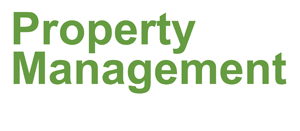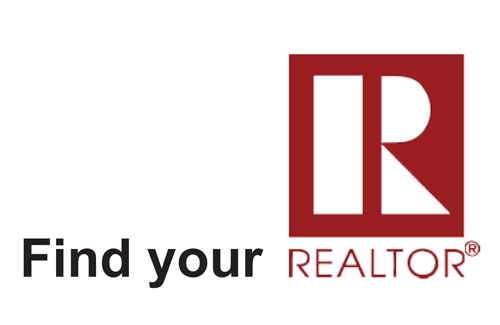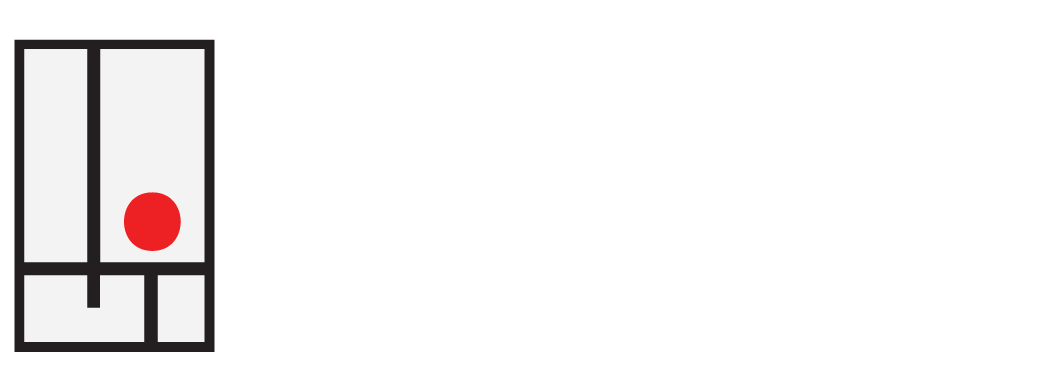
LENDING FAQ




How much money do I need to move in to a property?
You need the rent plus the security deposit and any pet deposits if applicable.
How much money do I need to apply for a property?
No money is needed to complete an application. If your application is accepted you will be asked for a $30.00 application processing fee, and then we will work with you to find an appropriate unit from our extensive inventory. Call for an appointment and we will be happy to consider your application.
Is there an approval process?
Yes, we will verify your employment, call your previous landlord for a reference and perform a basic background check. When the application is properly completed we will usually make a decision that same day.
What do you look at to determine if my application will be approved or not?
You cannot have any criminal convictions in the last 10 years. You cannot have an eviction in the last 10 years. Generally, we look to see that the household income is three times the amount of rent. This must be verified by a third party such as a paycheck stub or tax return. If you have any questions, just ask one of staff.
What happens after my application is accepted?
After your application is accepted you will be required to pay a $30.00 non-refundable processing fee per adult (any person over 18). Once you're accepted as a tenant, we can begin to show you available units that meet your requirements. We can hold a unit for you upon receipt of half of the move in funds (reposit and rent).
Can I pay the move in amounts with a personal check or in cash?
NO CASH ACCEPTED!! We will take check, money order or ACH payments.
What does it take to get a house or apartment to pass a Section 8 inspection?
It has to meet housing quality standards. Click here for complete information on inspection standards.
How much do I offer?
We can give you a comparative market analysis (CMA) on homes in the area to give you an idea of how the other properties are valued, so you can make an educated offer. Our job is to get you the best deal possible on that home.
How much is reasonable for an earnest deposit?
Typically, 1% of the purchase price is reasonable for an earnest deposit. Itís important to let the sellers know that you are serious about purchasing their home.
What if we have to sell our house before moving into a new one?
This is a very common issue. First, we can help you list your home, and get it sold as quickly as possible for the best price. Then, you have several options. You can wait until your home is sold and make alternative living arrangements while you look for a new home. You can look into a bridge loan if you have a mortgage and make your offer contingent on your current home selling; bear in mind that some sellers will not entertain an offer that is contingent upon a home sale. Discussing your options with your lender is always wise.
What do we do about a home inspection?
Finding a good home inspector is one of the most important steps of purchasing a home. We use home inspectors who pay attention to detail, find and report all the issues. The last thing you want is to move into your dream home and have it start (and continue) to fall apart. With all the facts in hand, we can negotiate with the seller for concessions and/or repairs to major defects.
How do I get out of the deal if there are problems? What are my options?
It is very important to understand the consequences of signing a purchase agreement. Minimally, if you decide to opt out of the purchase agreement, you can potentially lose your earnest deposit. Maximally, depending upon the circumstances, there can be legal ramifications.
What kind of closing costs can I expect?
Closing costs will vary from lender to lender and may change based on loan program and lock-in term. The main closing costs consist of the costs for the appraisal, processing, underwriting, credit report, tax service, flood search, title insurance, loan closing, real estate closing, recording fees, plot plan and termite inspection. There may be additional costs to originate the loan or buy-down the rate as well. Some lenders may pay for or omit some/all of these fees depending on the type and structure of the mortgage. Most of the closing costs are paid to a third party for the service they provide during the transaction.
What is a good faith estimate, and should I receive one from my lender?
The good faith estimate is the lenders breakdown of the costs associated with the mortgage. It gives you an itemized detail specific to your transaction. RESPA (the Real Estate Settlement Procedures Act) requires lenders to provide borrowers a good faith estimate within three business days of an application. It does not require lenders to provide estimates to those who do not apply. Some lenders will give you one upon request, but keep in mind a good estimate is only possible after you go through the application process and the lender knows what type of credit and loan programs you qualify for.
What is PMI?
PMI stands for Private Mortgage Insurance. It is insurance against a loss by a lender in the event of default by a borrower. The insurance is similar to insurance by a governmental agency such as FHA or VA, except that it is issued by a private insurance company. The premium is paid by the borrower and is included in the mortgage payment.
What do the different types of mortgages mean, and which is best for me?
The answer to this question is as unique as the individual. A good lender will ask questions early in the application process and present you with options that fit your needs. If a low payment is what youíre looking for and interest only, ARM may be the best option. If you want to build equity as quickly as possible, a 10, 15 or 20-year term might help you out. If you are someone who moves or relocates every few years, a three year ARM might be the best product. Most people donít realize a 30-year fixed rate mortgage is one of the most expensive products on the market. You may be throwing away thousands of dollars on the wrong mortgage. This is an important area to be informed!
What is an ARM?
An ARM is an Adjustable Rate Mortgage. An adjustable rate mortgage is one in which the interest rate changes periodically, according to corresponding fluctuations in an index. All ARMs are tied to indexes.
How long will it take to close on the house, and what are my options?
The length of time it takes to close on a property is subject to many factors. Initially, you choose an appropriate date upon which you would like to close and/or take possession. The standard is to allow 30-45 days to process and underwrite the loan. Certain loan programs can close more quickly, but your lender will be able to give you more details.
Who signs what paperwork?
As a buyer, the standard forms you will be initially signing are: a purchase contract, any applicable addenda, an agency disclosure, seller property disclosure, lead-based paint addendum and an estimated cost sheet. The seller will sign off on the acceptance part of the purchase contract and/or make any additional requests. You then sign off on the final changes, and if the price of the house has changed, you will sign an updated estimated cost sheet. The rest is at the closing table.
What property stays with the house?
The personal property that stays with the house is usually shown on the Multiple Listing Service (MLS). This typically means appliances, garage door openers, window coverings, ceiling fans, etc. If there are any discrepancies or additional pieces of property that are available, it can usually be worked out within the purchase agreement.
What is an SID?
An SID is a Sanitation Improvement District.
What exactly is radon, and how much is dangerous?
Radon is a colorless, odorless, tasteless radioactive gas that is formed during the natural breakdown of uranium in soil, rock and water. It exits the ground and can seep into your home through cracks and holes in the foundation. It can also enter your home in well water. Acceptable levels do not exceed 4 picocuries of radon per liter (pCi/L). It is very easy to have your home inspector conduct a radon test at the time of the inspection.
What if I am moving from out of town?
We love to be of assistance to those moving in from other places! We can pick you up from the airport and show you all that Omaha has to offer. Much of the initial work can be done online prior to your visit, and upon arrival, we can get started showing you homes that meet your criteria. We make things as simple as possible, from finding your perfect home, to closing and moving in.
How do I get started?
Give us a call or email us - no obligation. We're happy to answer any questions and look forward to hearing from you!
- Contact us via web
- Or reach us at (402) 553-8111
- Contact us via web
- Or reach us at (402) 553-8111
Why shouldn't I price my house a little high, since I can always drop the price later?
That strategy may sound good - but, in fact, is more likely to result in a lower price. Here's why: The first few weeks a house is on the market is when it will have the most activity. If a house is overpriced, it has to compete with houses at that higher price level, which are almost certainly larger or have newer/more luxurious features.
So the overpriced home is unlikely to attract an offer. Worse yet, those first weeks are when real estate agents preview the house. If it's overpriced, they may not even bother to show it to their buyers. Eventually, the seller will have to drop the price - and may end up with an even lower price because buyers will wonder why the house has been on the market so long, and that may factor that into their offer. A Weichert Price Trend Analysis provides a unique method for arriving at a selling price that takes your local market situation into account.
So the overpriced home is unlikely to attract an offer. Worse yet, those first weeks are when real estate agents preview the house. If it's overpriced, they may not even bother to show it to their buyers. Eventually, the seller will have to drop the price - and may end up with an even lower price because buyers will wonder why the house has been on the market so long, and that may factor that into their offer. A Weichert Price Trend Analysis provides a unique method for arriving at a selling price that takes your local market situation into account.
What is meant by the term "contingency" in a sales contract?
Sales contracts typically contain several "contingency" clauses, or stipulations surrounding the sale. For example, with a mortgage contingency, if the buyer is unable to obtain financing within the specified time frame, neither the buyer nor the seller is required to complete the purchase. Among other common provisions in the "subject to" section are termite and other inspection issues and the buyer's need to sell their current home first.
What is an escape clause?
An escape clause, also known as a kickout or knockout clause, is a provision that allows the party to void the contract. For example, the seller may retain the right to look for a more favorable offer (with the original purchaser retaining the right) if challenged, either to firm up the first sales contract (such as by waiving a contingency) or to void the contract. Another example is that sellers could insist upon an escape clause in a contract that hinges on the buyer selling their home.
Will I owe taxes when I sell my house?
Thanks to the Taxpayer Relief Act of 1997, many home sellers no longer owe taxes on the gain they make when they sell their houses. Married taxpayers who file jointly now get to keep, tax free, up to $500,000 in gain on the sale of their home, as long as they lived in it for two of the prior five years. Single folks and married taxpayers who file separately get to keep up to $250,000.
Why should I use a real estate agent?
A real estate agent is more than just a "sales person." They act on your behalf as your during this confusing process, providing you with advice and guidance all while helping you buy or sell a home. Click here to learn more about our intelligent real estate experts - Landmark Group REALTORSģ.
Due to the fast changing market, the data on available listings is not 100% accurate. There are times when you need the most current information about what has sold or is for sale, and the only way to get that is with an agent.
Due to the fast changing market, the data on available listings is not 100% accurate. There are times when you need the most current information about what has sold or is for sale, and the only way to get that is with an agent.
Below we've included some frequently asked questions - for renters, landlords, buyers and sellers. If you don't see your question answered here, please don't hesitate to contact us or call (402) 553-8111 and we will do our best to help you. Click a category below to jump to those questions.
FREQUENTLY ASKED QUESTIONS
RENTER FAQ
LANDLORD FAQ
BUYER FAQ
SELLER FAQ
RENTER FAQ

What is Section 8?
•
Omaha Housing Authority (They have 4200 vouchers)
•
Douglas County Housing Authority
•
Southern Iowa Regional Housing Authority
•
Bellevue Housing Authority
•
Sarpy Country Housing Authority
Established in 1974, the Choice Voucher (HCV) program (often times referred to as Section 8) from the Department of Housing and Urban Development (HUD). It is voucher based, meaning that the tenant can take the voucher where ever they move so long as the landlord accepts Section 8. It's also an entitlement program, meaning that once a tenant qualifies and does not violate any rules, it can not be taken away from that tenant. The value of the voucher is based on the number of bedrooms in the house, and the amount paid by the tenant depends how they meet certain criteria. The section 8 program in Omaha MSA is administered by:
What are the advantages of Section 8?
•
Most the rent comes from the government
•
The tenantís rent depends on their income. When it breaks down, the tenant typically won't pay any more than 30% of their income.
•
Under the program guidelines, the unit has to be inspected at least once a year
•
For landlords, it is a good way to make sure your rental property is kept in shape and up-to-date.
•
For tenants to keep this voucher, housing authorities require that the place be clean and well-kept.
•
Our experience has been that these tenants stay a little more than four years.
What are the disadvantages of Section 8?
•
As with any federal program, there is a lot of paperwork.
•
You are required to make the repairs that Section 8 inspectors want, and if you do not make the repairs, they will require the tenant to move and your property won't be eligible for the program.
•
After a tenant first moves in, it can take up to four months to get rent from the housing authority. The first payment is retroactive and the tenant is required to pay during this time
LANDLORD FAQ
BUYER FAQ
SELLER FAQ
BACK TO TOP
BACK TO TOP
BACK TO TOP
BACK TO TOP
Why is it important to be pre-approved before shopping for a home?
Very simply put, a pre-approval letter lets you know the range in which you should be looking. There is nothing more frustrating to you, the buyer, than to come across your dream home, only to find that itís beyond your budget. A pre-approval letter from your lender is essential to have when making an offer on a home. This is a solid way to make the seller feel a little more at ease that the person making an offer really can afford the home. The biggest risk to a seller is pulling a house off the market because they think their home has been sold, just to have it fall through 30 days later after losing valuable market time. This is also the reason for an earnest deposit. Typically, 1% of the purchase price is acceptable. Another reason for a pre-approval is that it completes many of the necessary steps in closing on the home, such as verifying income, assets and financial stability. This will help ensure a quick, smooth closing process.
What closing costs are associated with getting a loan?
Closing costs will vary from lender to lender and may change based on loan program and lock-in term. The main closing costs consist of the costs for the appraisal, processing, underwriting, credit report, tax service, flood search, title insurance, loan closing, real estate closing, recording fees, plot plan and termite inspection. There may be additional costs to originate the loan or buy down the rate as well. Some lenders may pay for or omit some or all of these fees depending on the type and structure of the mortgage. Most of the closing costs are paid to a third party for the service they provide during the transaction.
Will you guarantee the closing costs you are quoting me?
Many lenders will quote you closing costs but will not honor them at the closing table. This is very common with out of town or internet lenders who donít know the local market costs. Such as what an appraiser charges here as opposed to one in Florida. It is important that you find a lender that will do the research based on your transaction prior to quoting you closing costs. A true professional will guarantee that once you pick a program and lock it in, your costs will not change.
What are the prepaid items and escrow fees, and are they included in the closing costs?
There are two types of costs when purchasing a home. The closing costs are the costs of getting the loan. The other is the pre-paid items or Escrows, which are the costs of acquiring the property. Most homeowners will set up an escrow account to pay for home owners insurance, property taxes, and mortgage insurance if applicable. Typically pre-paid interest falls into the escrow category as well because it is not a cost of getting the financing but a cost of having a mortgage. Generally a years worth of homeowners insurance is due at closing and any taxes that are reimbursable to the seller for the time they have paid but will not live in the home. Then there are usually a few months of insurance and several months of taxes put into the escrow account. The number of months will vary depending on the first payment due date and when the taxes are due. Usually two to three months of insurance and four to eight months of taxes should be expected when setting up the reserve account.
Many lenders will quote these numbers to you separately. The main reason is the closing costs will vary from one lender to the next. This is what youíre comparing. The taxes and insurance are not charged by the lender and will most likely be the same regardless of who you do your mortgage with. However, make sure you get both sets of numbers so youíre not left surprised later in the process.
Many lenders will quote these numbers to you separately. The main reason is the closing costs will vary from one lender to the next. This is what youíre comparing. The taxes and insurance are not charged by the lender and will most likely be the same regardless of who you do your mortgage with. However, make sure you get both sets of numbers so youíre not left surprised later in the process.
What is a good faith estimate, and should I receive one from my lender?
The good faith estimate is the lender's breakdown of the costs associated with the mortgage. It gives you an itemized detail specific to your transaction. RESPA (the Real Estate Settlement Procedures Act) requires lenders to provide borrowers a good faith estimate within three business days of application. It does not require lenders to provide estimates to those who do not apply. Some lenders will give you one upon request, but keep in mind a good estimate is only possible after you go though the application process and the lender knows what type of credit and loan programs that you qualify for.
Will you guarantee the rate you are quoting me?
Rates change on a daily basis. Sometimes it can change on an intra-day basis. When you call for a rate quote it is usually only good until the market changes or until you lock it in. Once you lock it in, you should ask for a lock in confirmation so you have on paper what your rate will be. Once locked in, that rate should remain good as long as you close within the specified lock in period. For example, if you lock in a rate for 30 days, you must close within 30 days. Otherwise you may be subject to additional costs to extend the lock or lose your lock and be subject to a different rate.
What is the difference between the interest rate quoted and the APR?
The interest rate is the rate of interest you will pay on what you are financing. The APR or Annual Percentage Rate is a number that consists of your interest rate plus certain closing costs and mortgage insurance if applicable.
The APR was supposed to be used to level the playing field and put the true costs of the loan into one simple number to compare to other loans. Such as if you compare a 30 year mortgage from one lender who might charge an origination fee to that of another lender who might have lower closing costs but a slightly higher interest rate. The APR might point you in the right direction of which one might cost you less over the life of the loan. The APR is not used to figure out your monthly payments.
The APR was supposed to be used to level the playing field and put the true costs of the loan into one simple number to compare to other loans. Such as if you compare a 30 year mortgage from one lender who might charge an origination fee to that of another lender who might have lower closing costs but a slightly higher interest rate. The APR might point you in the right direction of which one might cost you less over the life of the loan. The APR is not used to figure out your monthly payments.
How will I know which product works best for me?
The answer to this question is as unique as the individual. A good lender will ask questions early in the application process and present you with options that may fit your needs. If the lowest payments is what your looking for, and interest only arm may be the best option. If you want to build equity as quickly as possible, a 10, 15 or 20 year term might help you out. If you are someone who moves or relocates every two years, a three-year ARM might be the best product. Most people donít realize a 30-year fixed rate mortgage is one of the most expensive products on the market. You may be throwing away $1000ís on the wrong mortgage.
How long does it take to close my loan?
This is a loaded question. Most lenders will strive to close on the date that is negotiated between the buyer and the seller and put on the purchase agreement. Some loans such as FHA and VA loans may take a little longer to underwrite and if there are any appraisal issues, it may slow the process down dramatically. With motivated individuals, a conventional loan can be closed within a few days. This is assuming the appraiser, title company, surveyor, termite inspector, insurance agent, realtors and borrowers all work together. Most of the time a week or two is much more appreciated by all the parties involved.
How should I choose which lender is right for me?
We have strong relationships with several lenders, based on wonderful experiences. You should choose a lender that is honest with you and is someone you can trust. You want someone who is experienced in the industry. It is a good idea to compare two or three lenders' rates and closing costs. You want to work with a lender that will offer you guaranteed rates and closing costs when you lock in. If they wonít guarantee what they quote you when you lock in, it may end up costing you more than you realize when you get to closing.
LENDING FAQ
BACK TO TOP


2702 Douglas Street
© 1999-2011 Landmark Group
Omaha, NE 68131
Phone: 402.553.8111
Fax: 402.553.8308


JOIN OUR STAFF!
We are always looking for talented professionals to add to our team. Click here to see our openings.
We are always looking for talented professionals to add to our team. Click here to see our openings.























